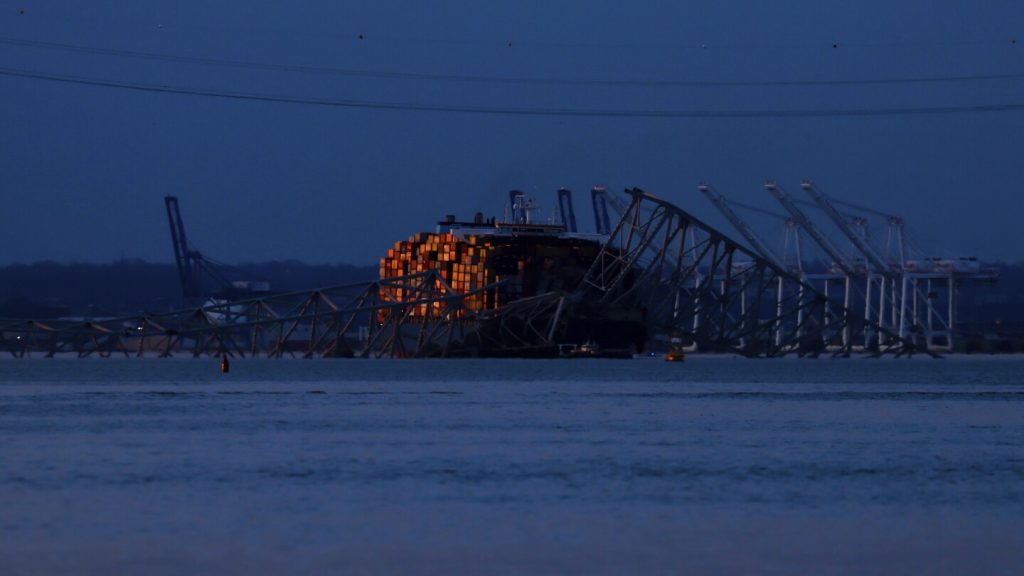The owner and manager of a cargo ship that caused a bridge collapse in Baltimore recently filed a court petition to limit their legal liability for the disaster. This petition is a routine procedure under U.S. maritime law, and a federal court in Maryland will determine who is responsible and how much they owe for the incident. The companies, Grace Ocean Private Ltd. and Synergy Marine Pte Ltd., are seeking to cap their liability at around $43.6 million, based on the value of the vessel and various expenses incurred as a result of the accident.
The companies filed under an 1851 maritime law provision that allows them to seek to limit their liability to the value of the vessel’s remains after an accident. This mechanism has been used in previous maritime disasters to defend against legal claims. Maritime law experts predict that resolving this case could take several years, mainly due to the need to determine the exact cause of the accident and what could have been done to prevent it. The estimated cost of the bridge collapse is expected to be significant, potentially surpassing the record set by the Costa Concordia shipwreck in 2012.
The collapse of the Francis Scott Key Bridge has resulted in multiple casualties, with eight people working on the structure at the time. Two individuals were rescued, two bodies were recovered, and four remain missing and presumed dead. The closure of the Port of Baltimore, a major shipping hub, is likely to have a significant impact on the local economy in the coming months. The cost of rebuilding the collapsed bridge is estimated to be at least $400 million, depending on the design chosen for its replacement. Families of the victims may be entitled to financial compensation under maritime law, which considers factors such as lost income and funeral expenses.
The bridge collapse in Baltimore is expected to generate substantial losses for insurance companies, potentially making it one of the most expensive marine insured losses in history. The total insured losses for the incident could range from $2 billion to $4 billion, significantly impacting the insurance industry. The legal process for determining liability and resolving claims related to the disaster is likely to be complex due to the scale of the incident and the number of parties involved. It is essential to thoroughly investigate the circumstances leading to the collapse to prevent similar accidents in the future.
Overall, the aftermath of the bridge collapse in Baltimore highlights the importance of maritime law in determining liability and compensation for such disasters. The legal proceedings in this case are expected to unfold over an extended period, with various factors affecting the final outcome. As investigations continue and more information comes to light, a clearer picture of the causes and consequences of the accident will emerge. The impact on the local community, the economy, and the insurance industry underscores the wide-reaching repercussions of maritime disasters and the need for comprehensive legal mechanisms to address them.


